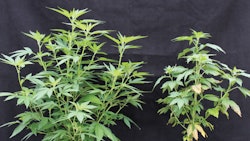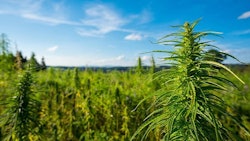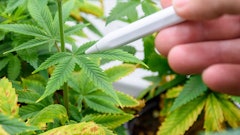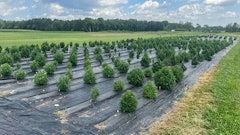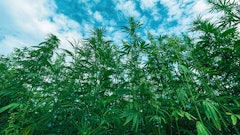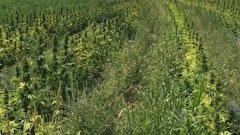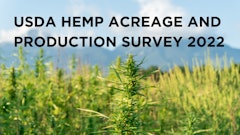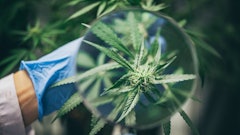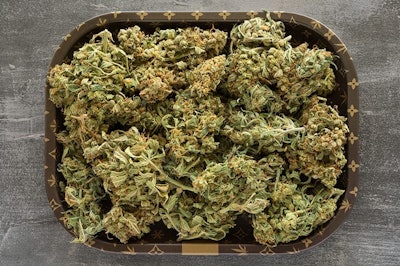
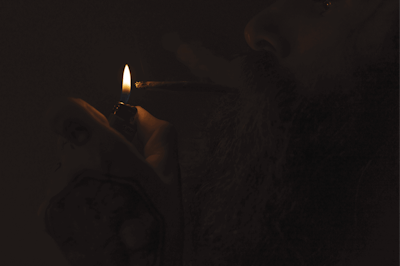
Hemp prices have fluctuated dramatically over the past two growing seasons, as hemp farmers know all too well. The biomass market in particular has drifted downward significantly from the heady days of 2019, according to a report by PanXchange, a leading benchmark price provider in the U.S. hemp industry. Although some market observers such as Hemp Benchmarks report that prices have stabilized during the past several months, this is cold comfort for growers who expected to turn a profit from biomass.
One bright spot has been the smokable flower market. Several industry analysts describe smokable hemp—which, in this article, refers to loose flower, pre-rolls and other inhalable products excluding vapes—as a fast-growing, lucrative market. Market research firm Nielsen Global Connect estimated the smokable hemp market may see sales upwards of $80 million in 2020, according to the firm’s external communications manager.
Others, like Hemp Benchmarks, report that prices per pound of smokable hemp are roughly 20 times that of a pound of biomass. Anecdotally, I know several growers who successfully sell smokable hemp direct to consumers and whose business model depends on those product margins.
But the smokable hemp market has its challenges. Chief among those is the number of states that prohibit the sale of smokable hemp. Several states have enacted laws that expressly ban the sale of the product, including Georgia, Hawaii, Iowa, South Dakota and Indiana. The primary reason states have prohibited smokable hemp is because law enforcement has raised concerns about differentiating it from higher THC cannabis, as both look and smell the same.
Smokable hemp’s legal status in other jurisdictions is unclear. In some cases, the laws and regulations arguably prohibit the sale of smokable hemp. Take Arkansas, for example, where the definition of a “marketable hemp product” excludes living hemp plants, leaf materials and floral materials. Per the state’s law, a licensee may not sell these materials to persons who do not hold licenses. While the law does not explicitly state that licensees cannot sell smokable hemp to the general public, it’s arguable that because floral material is not a marketable hemp product, smokable hemp isn’t either.
Based on Harris Bricken’s analysis of state laws, other states where the legal status of smokable hemp is potentially unclear include Mississippi and Utah.
Then, of course, some states have virtually no restrictions other than complying with the generally applicable hemp regulations. A few examples here are Oregon, California, Minnesota, West Virginia and Wyoming.
This confusing and frequently changing patchwork of state laws and regulations does no favors to a farmer seeking to market and sell smokable flower.
Federal Solution Unlikely
Perhaps the federal government will step in and override state laws that prohibit smokable hemp sales as incompatible with the Agriculture Improvement Act of 2018 (the 2018 Farm Bill). However, most of us tracking this issue believe such intervention is unlikely.
Market participants have also expressed concern over whether the U.S. Food and Drug Administration (FDA) will step in and regulate, or even ban, smokable hemp. Most legal observers, myself included, also doubt this will happen. The FDA has bigger fish to fry and lacks the institutional will to do anything about smokable hemp. (Recall we are still waiting for regulations on CBD.) Also, the FDA arguably does not have jurisdictional authority to regulate smokable hemp as it does tobacco under the 2009 Family Smoking Prevention and Tobacco Control Act. This is because the FDA’s definition of “tobacco products” doesn’t include products without nicotine or tobacco.
And although Congress has been favorable to the hemp industry as of late, it is not clear whether this extends to smokable hemp. In short, growers should not expect a “federal fix” to the smokable hemp problem any time soon.
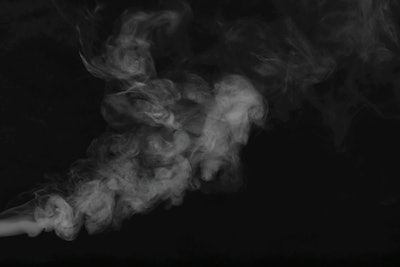
Case Study: Indiana
One lawsuit that may tip the scale is underway in Indiana. In C.Y. Wholesale, Inc. v. Holcomb, a collection of wholesalers and retailers filed a case, along with the Midwest Hemp Council (together referred to as the “plaintiffs”), against the state of Indiana. The plaintiffs assert the state’s prohibition on smokable hemp is incompatible with the 2018 Farm Bill and are looking to overturn it.
Before examining the import of the lawsuit, let’s take a brief look at Indiana hemp law and litigation history.
In 2019, Indiana passed Senate Enrolled Act 516 (SEA 516) to establish a regulatory framework for hemp production under the 2018 Farm Bill. The act criminalized the possession of “smokable hemp,” which is defined as any industrial hemp product “in a form that allows THC to be introduced into the human body by inhalation of smoke.” (So, under this law, hemp containing 0% THC technically could be marketable as smokable hemp.)
One important question under SEA 516 relates to the potential of a hemp company transporting smokable hemp through Indiana on the way to another state. On its face, Indiana’s law made this a criminal act.
Days before SEA 516 was to go into effect, the plaintiffs filed a federal lawsuit in district court challenging the law and seeking a temporary injunction to stop Indiana from enforcing the smokable hemp ban. The plaintiffs argued that the ban was impermissible (otherwise known as the legal term “preempted”) by the 2018 Farm Bill’s mandate that states must allow all forms of industrial hemp to be transported through their territories.
The district court agreed with the plaintiffs and issued an injunction blocking portions of SEA 516. The state of Indiana appealed the case to the Seventh Circuit Court of Appeals (the court where the newest U.S. Supreme Court Justice, Amy Coney Barrett, came from).
While the appeal was pending, Indiana enacted Senate Enrolled Act 335 (SEA 335) to save SEA 516. This new law tried to clarify that Indiana’s prohibition on the delivery and possession of smokable hemp did “not apply to the shipment of smokable hemp from a licensed producer in another state in continuous transit through Indiana to a licensed handler in any state.”
So, this means smokable hemp passing through Indiana to another state is not a criminal act, but manufacturing, possessing or delivering smokable hemp remains a crime. However, this change did not shortcut the appeal.
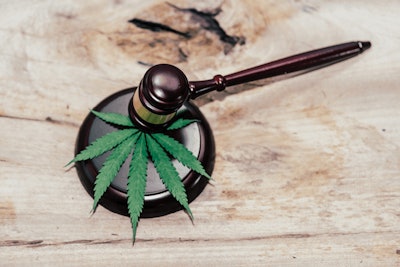
In July 2020, the Seventh Circuit appeals court ruled the district court’s injunction was too broad and sent the case back to the district court for further proceedings. The appeals court found that the part of SEA 516 that prohibits the “manufacture” (including cultivation) of smokable hemp did not violate the 2018 Farm Bill because the bill allows states to regulate hemp production. However, the appeals court also said the part of SEA 516 that criminalizes the “possession” of smokable hemp is likely preempted (impermissible) under the 2018 Farm Bill.
The plaintiffs recently sought to amend the complaint to add new allegations to challenge both Indiana laws—SEA 516 and SEA 335. The plaintiffs contend that both laws are preempted by the 2018 Farm Bill and the criminalization of parts of the hemp plant conflicts with the legalization of all parts of the hemp plant.
The district court allowed the plaintiffs to add these new allegations, so the case will proceed. But Indiana may seek dismissal, and there may be another appeal.
The outcome of this case could prove to be a bellwether for smokable hemp. Other courts may not be bound to follow a federal court ruling in Indiana, or even the Seventh Circuit. But a well-reasoned decision will have significant persuasive weight in other courts. And there is always the possibility of the case going to the U.S. Supreme Court, where a decision would be binding nationally.
If the plaintiffs ultimately prevail, Indiana’s prohibition on smokable hemp will be struck down. Following that decision, other states’ smokable hemp bans may be challenged and struck down as well. States could also be reluctant to enact prohibitions on smokable hemp if Indiana’s law is overturned.
But if its smokable hemp ban stays in place, other states may enact similar measures. The legal battle for smokable hemp may occur court-by-court or among state legislatures.
This case is one to watch in 2021.









